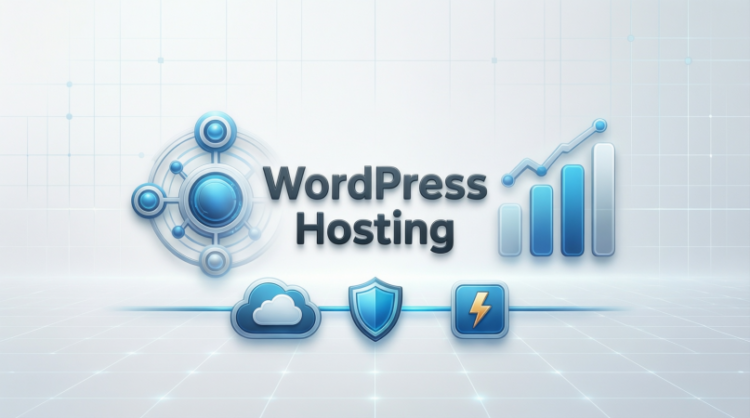
What You Need to Know About Business Taxes. As a business owner, taxes are a necessary part of running your company. Understanding the ins and outs of business taxes can be overwhelming, but it’s crucial to ensure your company is compliant with tax laws and regulations. From different types of taxes to tax planning and compliance, this guide will provide you with everything you need to know about business taxes. By the end of this article, you’ll have a better understanding of how taxes impact your business and how to make informed decisions for your company’s financial future.
Introduction to Business Taxes
As a business owner, taxes are an unavoidable part of your financial responsibilities. Understanding how they work and how to manage them can save you from headaches and ensure that you’re compliant with the law. In this article, we’ll cover the basics of business taxes, including the different types of taxes, deductions, and credits available to small businesses, and the importance of keeping accurate financial records.
What Are Business Taxes?
Business taxes are taxes that a business entity must pay to the government on its income, profits, or activities. The Internal Revenue Service (IRS) is responsible for collecting these taxes, and the amount owed is usually based on the type of business, its legal structure, and the amount of income earned.
Why Are Business Taxes Important?
Business taxes are essential because they allow the government to fund important public services like schools, hospitals, and infrastructure projects. Additionally, failure to pay taxes can result in serious consequences such as penalties, fines, or legal action. It’s crucial to stay compliant with tax regulations to avoid any legal or financial troubles.
Different Types of Business Taxes
There are several types of business taxes, each with different rates and calculations. Here are three of the most common types:
Income Taxes
This tax is based on the profits or earnings generated by your business operations. Depending on your legal structure, it can be paid by the business entity or the individual owners.
Self-Employment Taxes
Self-employed individuals (such as sole proprietors or independent contractors) are responsible for paying both the employer and employee’s portion of Social Security and Medicare taxes.
Payroll Taxes
If you have any employees, you’ll be responsible for paying certain taxes on their behalf. These include Social Security, Medicare, unemployment, and federal income taxes.
Understanding Tax Deductions and Credits
Fortunately, there are some ways to reduce your business tax liability. Here are two important ways to do so:
Deductible Business Expenses
The IRS allows businesses to deduct certain expenses from their income before calculating their taxes. Examples of deductible business expenses include office rent, salaries and wages, utilities, and office supplies.
Tax Credits for Small Businesses
There are several tax credits available to small businesses, such as the research and development credit, the work opportunity tax credit, and the small business health care tax credit. These credits can significantly reduce the amount of taxes you owe, so it’s worth investigating which ones your business may be eligible for.
Keeping Accurate Financial Records
Finally, it’s essential to keep accurate financial records to ensure that you’re paying the right amount of taxes and maintaining the necessary documentation in case of an audit.
Importance of Record Keeping
Clear, organized financial records can help you track your business’s financial health, prepare accurate tax returns, and avoid legal issues.
Tools for Record Keeping
There are many tools available to help you keep track of your finances, including accounting software, spreadsheets, and bookkeeping services. Choose the one that works best for your business size and needs.
With these basics in mind, you’ll be well on your way to managing your business taxes effectively and efficiently.
Tax Planning and Compliance
As a business owner, you probably know that taxes play a significant role in the success of your company. It is essential to understand and plan for tax compliance to avoid any last-minute problems.
Key Tax Deadlines
Missing a tax deadline can lead to penalties and interest charges, leaving your business in financial trouble. It is essential to mark down these essential tax deadlines:
– January 31 – Deadline for sending out W-2 forms to employees and filing Form 941
– March 15 – Partnership and S Corporation tax returns are due
– April 15 – Deadline for personal tax returns and C Corporation tax returns (if your business follows the calendar year)
– September 15 – The deadline for extended Partnership and S Corporation tax returns
– October 15 – The deadline for extended personal tax returns and C Corporation tax returns
Estimating Quarterly Taxes
Sole proprietors and self-employed individuals must estimate and pay taxes quarterly. It’s essential to know how to calculate estimated taxes and make timely payments to avoid penalties.
Common Tax Mistakes Business Owners Make
Even the most organized business owners can make tax mistakes. Here are two common ones you should avoid:
Misclassifying Employees
Misclassifying employees as independent contractors is a costly mistake that often leads to penalties and back taxes. Always double-check the IRS guidelines before deciding whether to classify someone as an employee or an independent contractor.
Missing Deductions
Deductions can lower your taxable income, decreasing the amount you owe. Be sure to keep track of all business-related expenses to make the most out of your deductions.
Working With a Tax Professional
Navigating through the tax code can be challenging, and working with a tax professional can help. Here are some things to keep in mind when working with one:
When to Hire a Tax Professional
You should hire a tax professional if you’re a new business owner, have complex tax situations, or are facing an IRS audit.
How to Choose a Tax Professional
When hiring a tax professional, look for someone with experience in your industry, and who can provide references. It’s also essential to make sure they are registered with the IRS and licensed to practice in your state.
Conclusion and Next Steps for Business Tax Filings
Understanding and complying with the tax code is a vital part of running a successful business. Keep up-to-date with tax deadlines, avoid common mistakes, and consider working with a tax professional to help you navigate the complexities of business taxes. With the right approach, you can ensure your business stays on the right side of the tax code and avoid any costly mistakes.In conclusion, business taxes can be complicated, but staying informed and organized is key. By understanding the different types of taxes, keeping accurate financial records, and working with a tax professional when necessary, you can ensure your business is compliant with tax laws and regulations. Remember to plan ahead, take advantage of deductions and credits, and stay up to date with tax deadlines. With these tips and resources, you’ll be on your way to managing your business taxes with confidence.
FAQ
What are some tax deductions that my small business can take advantage of?
Some common tax deductions for small businesses include: office rent or mortgage, supplies, equipment, employee salaries or wages, and business travel expenses. Consult with a tax professional to determine which deductions apply to your specific business.
What happens if my business misses a tax deadline?
Missing a tax deadline can result in penalties and interest charges. It’s important to stay up to date on tax deadlines to avoid these fees. If you do miss a deadline, it’s best to file as soon as possible to minimize the penalties.
When should I hire a tax professional for my business?
If you’re unsure about how to file your business taxes, or if your business has complex tax needs, it may be beneficial to hire a tax professional. A tax professional can help you navigate tax laws and regulations, identify deductions and credits, and ensure your business is compliant. Consider hiring a tax professional if you’re feeling overwhelmed or unsure about your tax responsibilities.
What are some common tax mistakes that small business owners make?
Some common tax mistakes include: misclassifying employees, missing deductions or credits, failing to keep accurate financial records, and missing tax deadlines. To avoid these mistakes, stay organized, seek professional guidance when necessary, and stay up to date on tax laws and regulations.
Read More :





